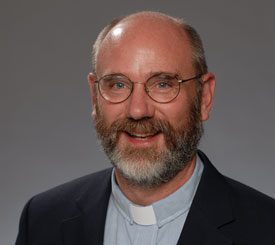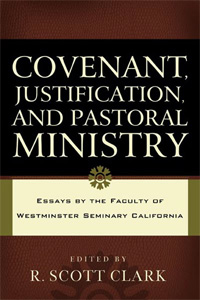In part 2 we considered the nature of assent. There is a third aspect to the Reformed definition of faith: trust. This is the crux of the disagreement between Rome and the Reformation over nature of faith in the act of justification. . . . Continue reading →
The Politics Of Sexual Identity
It also explains the politics of sexual identity. While it is true that homosexuality has been a common phenomenon in many societies throughout history, it has now achieved the novel status of defining the very essence of a person. Some Christians do . . . Continue reading →
The Collapse Of The Therapeutic Revolution
In the end the therapeutic revolution appears to have gotten one thing terribly wrong. And that one thing is its opening premise: the reduction of the moral to the therapeutic. Wilfrid McClay | “The Family That Shoulds Together,” The Hedgehog Review 15 . . . Continue reading →
Evidence Of Agrarian Life In North County

This gallery contains 9 photos.
How You Can Help Victims Of Typhoon Haiyan/Yolinda (Updated Again)
UPDATE Mon Nov 11, 2013. The reported numbers of injured and dead are much greater today than Saturday. See below for more information on how to help and whom to contact. § UPDATE #1 The NYT is now reporting that the Red Cross . . . Continue reading →
On Traveling From Münster To Geneva
In 1535 the Reformation was about 14 years old. The Protestants had gained some legal status within the Empire but its existence was by no means secure. Internally it was wracked with dissension over the moral and theological implications of the doctrine . . . Continue reading →
Grammar Guerilla: Your And You’re (Updated)
Several years ago I began to notice that young people were verbally articulate but their ability to speak well did not necessarily translate into an ability to write well. More recently it seems that verbal skills are suffering. There are a variety . . . Continue reading →
Heidelcast 48: Making Some Sense Of The Republication Debate Pt 1: History
Parts of the confessional Reformed world in North America are in the midst of a controversy over whether it is biblical, confessional, and historically Reformed to teach that the Mosaic covenant was, in some sense, a republication of the covenant of works. . . . Continue reading →
Lake Hodges On A Sunny November Saturday

This gallery contains 2 photos.
Calvin: Resolutely Adhere To The Exclusive Particle
When you are engaged in discussing the question of justification, beware of allowing any mention to be made of love or of works, but resolutely adhere to the exclusive particle. John Calvin | Commentary on Galatians 5:6, (1548) RESOURCES Subscribe To The . . . Continue reading →
And Now For Something Completely Different: Football, Teamwork, And Grace
Contra Leithart: No, The Reformation Isn’t Over
Before You Reject At Least Understand It
In a post on the First Things blog today, Peter Leithart declares the “End of Protestantism.” It’s not at all clear, however, that he understands what he wants to end. He begins with a sociological observation about contemporary English non-conformists and uses . . . Continue reading →
Striking At The Vitals Of Religion: Understanding The Federal Vision (Links Updated)
Enough time has passed since the FV matter was addressed decisively, ecclesiastically, in 2007, that not everyone may be equally aware of what it is and why it matters. Here are some resources: Covenant, Justification, and Pastoral Ministry: Essays by the Faculty . . . Continue reading →
ARP: The FV Is Unacceptable
The “New Perspective on Paul,” and the “Federal Vision,” are in conflict with the teaching of Scripture and as such they are unacceptable. The Synod of the Associate Reformed Presbyterian Church (2009) RESOURCES Subscribe To The Heidelblog! The Heidelblog Resource Page Heidelmedia . . . Continue reading →
A Form For Penitent Ex-Federal Visionaries
To all whom this these presents do come, I hereby declare that I really and heartily believe in form and substance what the Reformed churches confess, that God declares sinners righteous sola gratia, sola fide, only on the ground of the imputation . . . Continue reading →
For Those Just Tuning In: What Is The Federal Vision?
In talk radio the host is supposed to “re-set” the show at regular intervals. He is to remind listeners to which show they are listening and on what network or station. One reason why the host does this is because some listeners . . . Continue reading →
See It For Yourself: Piper On Wilson, Baptism, And The FV
Heidelcasts responding to these comments: Heidelcast episode #2: A Gentle Rebuke to Brother John (pt 1) Heidelcast episode #3: A Gentle Rebuke to Brother John (pt 2)
Is John Piper Reformed? Or Holding The Coalition Together (Updated)
This morning my friend Kevin DeYoung (listen to the Office Hours interview with Kevin here) makes some arguments in defense of a broader definition of the adjective Reformed. This question is at the heart of why the HB exists and and why I wrote . . . Continue reading →
For Elders Thinking Of Inviting Arminius Into Their Pulpit
From the time he entered the pastoral ministry, James Arminius (c. 1559–1609) was a controversial figure but he was also a minister in good standing in the Reformed Churches. Despite the intense controversy that his views and teaching generated, views that fractured . . . Continue reading →
The Damage Niceness Does
In this and moments like it, I find myself wishing I prized politeness less and had the interior freedom to kick out my friend and his mistress—or in some way to give the moral truth that has been jammed into a far . . . Continue reading →












